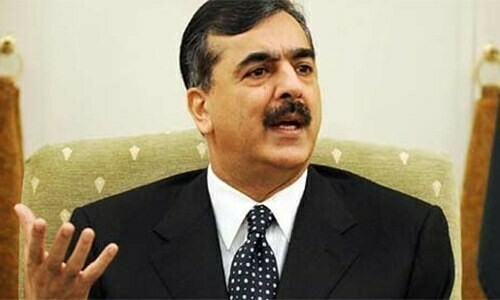
ISLAMABAD: Foreign Minister Hina Rabbani Khar suggested on Monday that the country should reopen its Afghan border to Nato troop supplies, saying the government has made its point by closing the route for nearly six months in retaliation for US airstrikes that killed 24 Pakistani troops.
Reopening the border risks a domestic backlash in Pakistan given Washington's refusal to apologise for last year's attack, which it says was an accident. But it could help ensure Pakistan has a role in the future of Afghanistan as Nato prepares to retool its strategy there during a major conference that starts on Sunday in Chicago.
Pakistan's presence would benefit the US-led coalition as well, since the country is seen as key to striking a peace deal with the Taliban and their allies in Afghanistan that would allow foreign troops to withdraw without the nation descending into further chaos.
The supply line running through Pakistan to landlocked Afghanistan will be key to that withdrawal as Nato pulls out more than a decade's worth of equipment. It has been critical for shipping in supplies as well, although the US has reduced its reliance on Pakistan in recent years by using a more costly route through Central Asia.
Shams Shahwani, a senior official in Pakistan's Petroleum Tanker Owners Association, said he was contacted on Monday by Petroleum Ministry officials who told him the Nato supply route will likely be opened by Wednesday evening. They told him to assemble his tankers in Karachi so they are ready to start transporting petroleum.
Foreign Minister Khar said the government made the right decision to close the border to Nato to send a message to Washington that the attack on its troops in November was unacceptable.
''It was important to make a point. Pakistan has made a point and now we can move on,'' Khar said at a news conference in Islamabad when asked whether she believed Pakistan should reopen the supply route.
The US welcomed Khar's comments, but said the two countries have yet to reach a final deal.
''Our team is still in Islamabad working on the land-route issue,'' US State Department spokeswoman Victoria Nuland told reporters in Washington. ''My understanding this morning is that they have made considerable progress but they are still working.''
Pakistan's defense committee of the Cabinet, which is responsible for deciding the fate of the supply route, was scheduled to meet on Tuesday to discuss the issue and could authorise its reopening.
The US and Pakistan still disagree on the circumstances that led US helicopters to strike two Pakistani army posts on the Afghan border, with the Pakistani military claiming the attack was deliberate.
The incident fueled already rampant anti-American sentiment in Pakistan and plunged the troubled relations between the two countries to an all-time low, threatening the vital, if spotty, anti-terrorism cooperation Washington has received since 2001 in exchange for billions of dollars in American aid.
Pakistan not only retaliated by blocking Nato supplies, but it also kicked the US out of a base used by American drones targeting Taliban and al Qaeda fighters in the country's tribal region along the Afghan border.
The US expressed its regret for the soldiers' deaths but stopped short of an outright apology, a decision analysts said was driven by concerns the Obama administration could face criticism from Republicans. Anger toward Pakistan in Washington is extremely high because of the country's alleged support for militants using its territory to attack US troops in Afghanistan.
Pakistan's weak, US-allied government sought political cover in dealing with the aftermath of the attack by tossing the issue to parliament, which used the opportunity to try to renegotiate the country's relationship with the US
After months of deliberation, Pakistani lawmakers unanimously approved new guidelines for bilateral ties in mid-April that demanded the US provide an ''unconditional apology'' for the November attack and stop drone strikes. Although parliament did not explicitly link these issues to reopening the supply line, they have complicated matters because the US has refused both demands.
The State Department, unlike the Pentagon or White House, had wanted to get an apology out of the way early, one US official said, but the span of time has made that a moot point.
Secretary of State Hillary Rodham Clinton and Pakistan's foreign minister discussed a possible apology in London in February, but Khar wanted the apology to wait until after the parliamentary debate. The reason was to make it look like the Pakistani parliament had forced Washington's hand, the official said, speaking on condition of anonymity to discuss diplomatic maneuvers.












































Dear visitor, the comments section is undergoing an overhaul and will return soon.